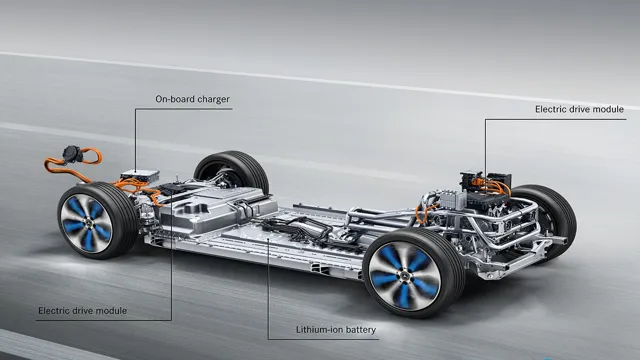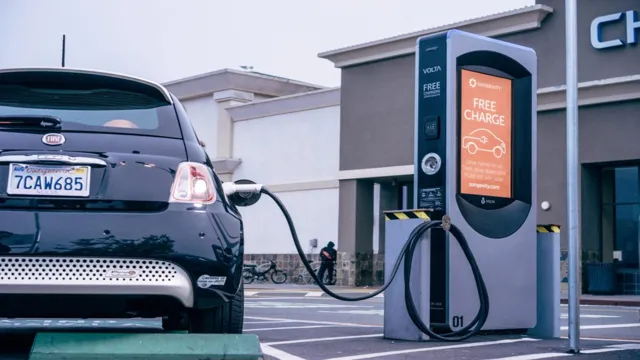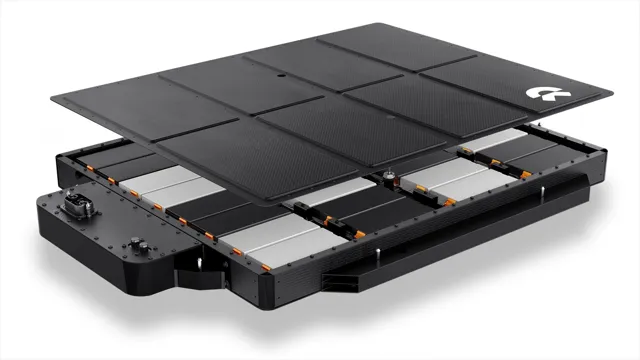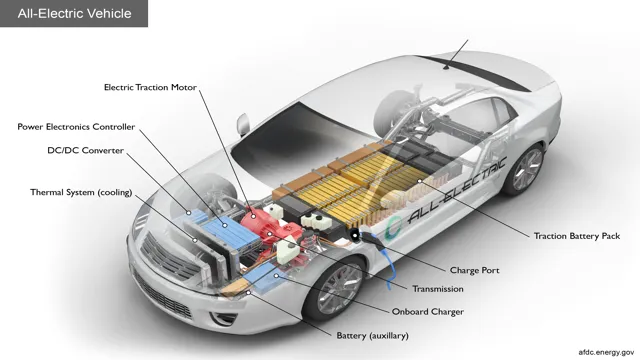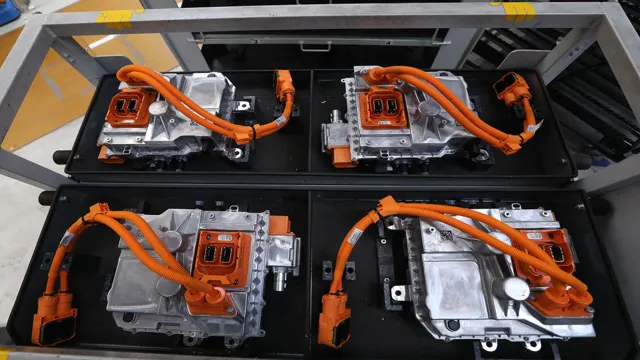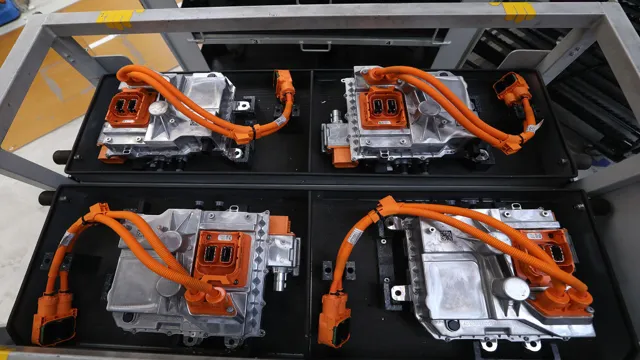Revolutionizing the Roads: The Latest Breakthroughs in Battery Technology for Electric Cars
Have you ever thought about what kind of battery powers your electric car? As electric vehicles become increasingly popular, advancements in battery technology are constantly being made to improve their power and efficiency. From lithium-ion to solid-state batteries, the quest to develop the perfect electric car battery is well underway. Why? Because these advancements in battery technology could change the game for electric cars, making them more reliable, long-lasting, and cost-effective.
In this blog post, we’ll dive into the latest developments in battery technology for electric cars and what they mean for the future of driving. So buckle up, and let’s explore the exciting world of electric car batteries!
History of Electric Car Batteries
Battery technology for electric cars has come a long way since its inception. The first electric cars used lead-acid batteries that were heavy, bulky, and had limited range. In the 1990s, nickel-metal hydride batteries came into use, which had a higher energy density and longer lifespan than lead-acid batteries.
However, the breakthrough in electric car battery technology came with the introduction of lithium-ion batteries in the early 2000s. These batteries were lighter, more compact, and had even higher energy density. They also allowed for longer-range electric cars, such as the Tesla Model S and the Chevrolet Bolt.
Today, the race continues to develop even better battery technology, from solid-state batteries to lithium-sulfur batteries, to bring affordable, long-range electric cars to the mass market. With efforts to make electric cars more popular for environmental and economic reasons, battery technology for electric cars is expected to continue to improve for years to come.
Early Battery Technology vs. Modern Cell Technology
The history of electric car batteries goes back over a century and the early battery technology used was very different from the modern cell technology used today. The first electric car was built in the 1830s, but it wasn’t until the late 1800s that rechargeable batteries were developed and electric cars became more practical. The early batteries used lead-acid technology, which is heavy, inefficient, and has a short lifespan.
However, in the 1970s, advancements in battery technology led to the development of nickel-cadmium batteries, which were lighter, more powerful, and had a longer lifespan than lead-acid batteries. Today, the most common type of electric car battery is the lithium-ion battery, which is even lighter and more powerful than nickel-cadmium batteries. These batteries have revolutionized the electric car industry, making it possible for cars to travel longer distances on a single charge and reducing the environmental impact of transportation.
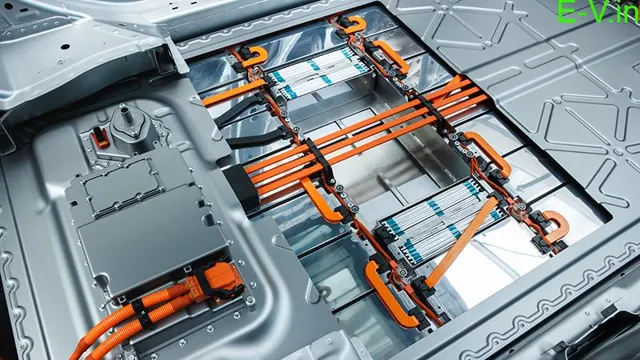
Lithium Ion Batteries and Beyond
The history of electric car batteries dates back to the late 1800s and early 1900s. The first electric cars were powered by lead-acid batteries, which were heavy and had limited range. Later, nickel-iron batteries were introduced, but they were also heavy and expensive.
In the 1960s, NASA began developing lithium-ion batteries for space missions, and eventually, they became commercially available for consumer electronics, such as laptops and cell phones. By the 1990s, automakers started experimenting with using lithium-ion batteries in electric cars. These batteries were lighter, more efficient, and provided better range compared to previous battery technologies.
However, they were still expensive, and it wasn’t until the early 2000s that automakers began mass-producing electric cars with lithium-ion batteries. Today, researchers are exploring new battery technologies, such as solid-state batteries and lithium-sulfur batteries, to further improve the performance and affordability of electric cars. As we move towards a more sustainable future, advancements in electric car battery technologies will play a critical role in reducing our dependence on fossil fuels.
Improving Efficiency and Range
Battery technology is constantly evolving, and this has major implications for the efficiency and range of electric cars. One advancement that has revolutionized battery technology is lithium-ion batteries, which can now store more energy and last longer than previous generations. Additionally, companies are developing batteries containing more nickel and fewer cobalt, which can increase the energy density and reduce the cost of production.
Another promising development is solid-state batteries which could offer even higher energy densities and quicker charging times. Beyond the batteries themselves, car manufacturers are also improving the efficiency of electric cars through regenerative braking systems and aerodynamic designs. These advancements in battery technology and car efficiency are crucial for increasing the adoption of electric cars and reducing our dependence on fossil fuels.
Battery Management Systems
A battery management system (BMS) plays a vital role in improving the efficiency and range of electric vehicles. Essentially, a BMS controls the charging and discharging of the battery while monitoring factors such as temperature, voltage, and current flow. By doing so, it ensures that the battery operates within safe limits, prevents overcharging or discharging, and maximizes the available range.
A well-designed BMS can significantly reduce energy waste by preventing unnecessary battery use and optimizing charging times. Think about it like a personal trainer — just as a trainer ensures you work out effectively and efficiently without causing harm to your body, a BMS ensures your battery works effectively and efficiently without causing damage. By implementing a BMS, electric vehicle owners can experience improved range, longer battery lifespan, and ultimately, a better driving experience.
Fast Charging Solutions
Fast Charging Solutions When it comes to electric vehicles, one of the biggest concerns for drivers is battery range and charging time. Fortunately, there are fast charging solutions available that can significantly improve the efficiency and range of electric cars. One of the most popular options is DC fast charging, which can charge a car’s battery to 80% capacity in as little as 30 minutes.
This type of charging is perfect for long drives or when time is short. Additionally, some electric vehicles come with fast charger compatibility, which allows them to charge even faster than standard EVs. This means that drivers can get back on the road quickly and easily, without worrying about running out of power.
By incorporating fast charging solutions into the electric vehicle market, manufacturers are able to provide drivers with greater convenience and peace of mind when it comes to range and charging time.
Solid State Battery Technology
Solid-state battery technology is opening up new possibilities in the world of electric vehicles. These batteries offer numerous advantages over traditional lithium-ion batteries, including improved efficiency and a longer range. With their solid-state design, they also pose fewer safety risks and are less susceptible to overheating and explosions.
Solid-state batteries use a solid electrolyte instead of a liquid one, which increases their energy density and allows for a greater amount of energy to be stored without taking up more space. The advancements in this technology could pave the way for electric vehicles with improved performance and lower costs, making them more accessible to a wider audience. Solid-state batteries may also have applications beyond the electric vehicle industry, such as in smartphones and laptops, where they would provide longer battery life and faster charging times.
Overall, the development of solid-state battery technology has the potential to revolutionize the way we use and rely on electronic devices.
Impact on Environment and Economics
Battery technology has been essential in the rise of electric cars, allowing for more efficient and sustainable transportation. Nevertheless, as with any technology, it has an impact on both the environment and economics. One of the primary environmental concerns is the production and disposal of batteries, which contain toxic chemicals and require large amounts of energy to manufacture.
To counteract this, some companies are investing in more sustainable methods of battery production and recycling, such as using renewable energy for manufacturing and developing new recycling technologies. From an economic perspective, battery production and the supply chain can be costly, impacting the overall cost of electric cars. However, as battery technology improves and becomes more efficient, the cost of production decreases, rendering electric vehicles more cost-effective.
Additionally, electric cars have lower fuel and maintenance costs, which can save consumers money in the long run. As electric cars become more prevalent, battery technology will continue to evolve, leading to cost savings and further reductions in environmental impacts. Overall, while battery technology has some negative impacts on the environment and the economy, it is a necessary component of a sustainable transportation system.
As technology advances and innovation occurs, the negative impacts will decrease, making electric cars and other battery-powered vehicles a viable option for many consumers.
Sustainability of Battery Production
The sustainability of battery production has become a hot topic in recent times. Apart from the fact that batteries play a critical role in powering electric vehicles and renewable energy storage systems, their production has a significant impact on the environment. The raw materials used in battery production are mostly mined, with lithium, cobalt, and nickel being the most commonly used.
Unfortunately, the mining of these materials has a devastating effect on the environment. The process involves cutting down forests, excavating large tracts of land and disposing of toxic waste into water bodies, which can cause immense harm to aquatic life. Moreover, battery production generates a substantial amount of greenhouse gases, which contribute to global warming.
In terms of economics, manufacturing batteries at a large scale can be expensive, which may increase roadblocks towards producing environmentally friendly batteries. While sustainability of battery production is still a major concern, manufacturers are pursuing more sustainable methods that can help mitigate the negative impact on the environment and keep costs under control. For example, some companies are using recycled materials to produce batteries or sourcing raw materials from mines which adhere to strict environmental regulations.
Cost Analysis of Batteries for Electric Cars
Electric Car Batteries When it comes to the cost analysis of batteries for electric cars, we need to consider both the impact on the environment and the economics. While electric cars are a promising solution for reducing carbon emissions, the production of batteries has a significant environmental impact. Mining for materials such as lithium, cobalt, and nickel required for electric car batteries can cause environmental degradation, and the disposal of used batteries can be toxic.
However, the economics of electric car batteries are rapidly improving. The cost of batteries has been decreasing over the years, making electric cars more affordable for consumers. In addition, the advancements in battery technology have led to increased range and improved performance, making electric cars more practical as a primary mode of transportation.
Moreover, the price of batteries is expected to continue decreasing as more companies invest in the development of battery technology, and the demand for electric cars rises. With the increased market competition, the cost of production will decrease, leading to more affordable electric cars for consumers. Overall, while the cost analysis of batteries for electric cars has both positive and negative aspects, the trend appears to be heading towards a more economically and environmentally sustainable future.
As technology advances and becomes more accessible, we can hope for a future that is not only more efficient but also less harmful to the environment.
Future of Battery Technology for Electric Cars
Battery technology for electric cars is an ever-evolving field. As the demand for electric cars continues to rise, researchers are constantly searching for ways to improve battery technology. Lithium-ion batteries have dominated the electric car industry due to their energy density and ability to be recharged, but they do have limitations in terms of cost, lifespan, and sustainability.
That is why researchers are exploring new battery technologies such as solid-state batteries, which offer higher energy density and longer lifespan at a lower cost. Additionally, other battery materials such as silicon and sodium are being investigated to create more sustainable and efficient battery systems. With the advancements in battery technology, the future of electric cars seems promising.
Not only will it lead to longer ranges and faster charging times, but it also has the potential to reduce the carbon footprint of the transportation industry and make driving an electric car more accessible and affordable to everyone.
Conclusion
In conclusion, battery technology is the lifeblood of electric cars – it’s what keeps them humming along to the tune of a cleaner, greener planet. Sure, there may be some bumps in the road when it comes to range anxiety and charging infrastructure, but with continued innovation and investment in the field, it won’t be long before we’re all cruising down the highway on electric power alone. So, let’s raise a (reusable) glass to the power of batteries and the bright future of electric cars!”
FAQs
How has battery technology impacted the growth of electric cars?
Battery technology has played a crucial role in the growth of electric cars. The development of advanced lithium-ion batteries has allowed electric cars to travel longer distances on a single charge, making them a more practical option for consumers.
What is the lifespan of an electric car battery?
The lifespan of an electric car battery varies depending on the vehicle and the battery type. On average, electric car batteries last between 8-10 years before needing to be replaced.
What are the environmental benefits of using electric cars with advanced battery technology?
One major environmental benefit of using electric cars with advanced battery technology is reducing greenhouse gas emissions. Electric cars produce little to no emissions, resulting in a cleaner environment and improved air quality.
How does battery technology impact the cost of electric cars?
Battery technology is a significant factor in the cost of electric cars. As battery technology advances and becomes more efficient, the cost of electric cars is likely to decrease. However, the initial cost of electric cars can be higher due to the cost of the battery system.
